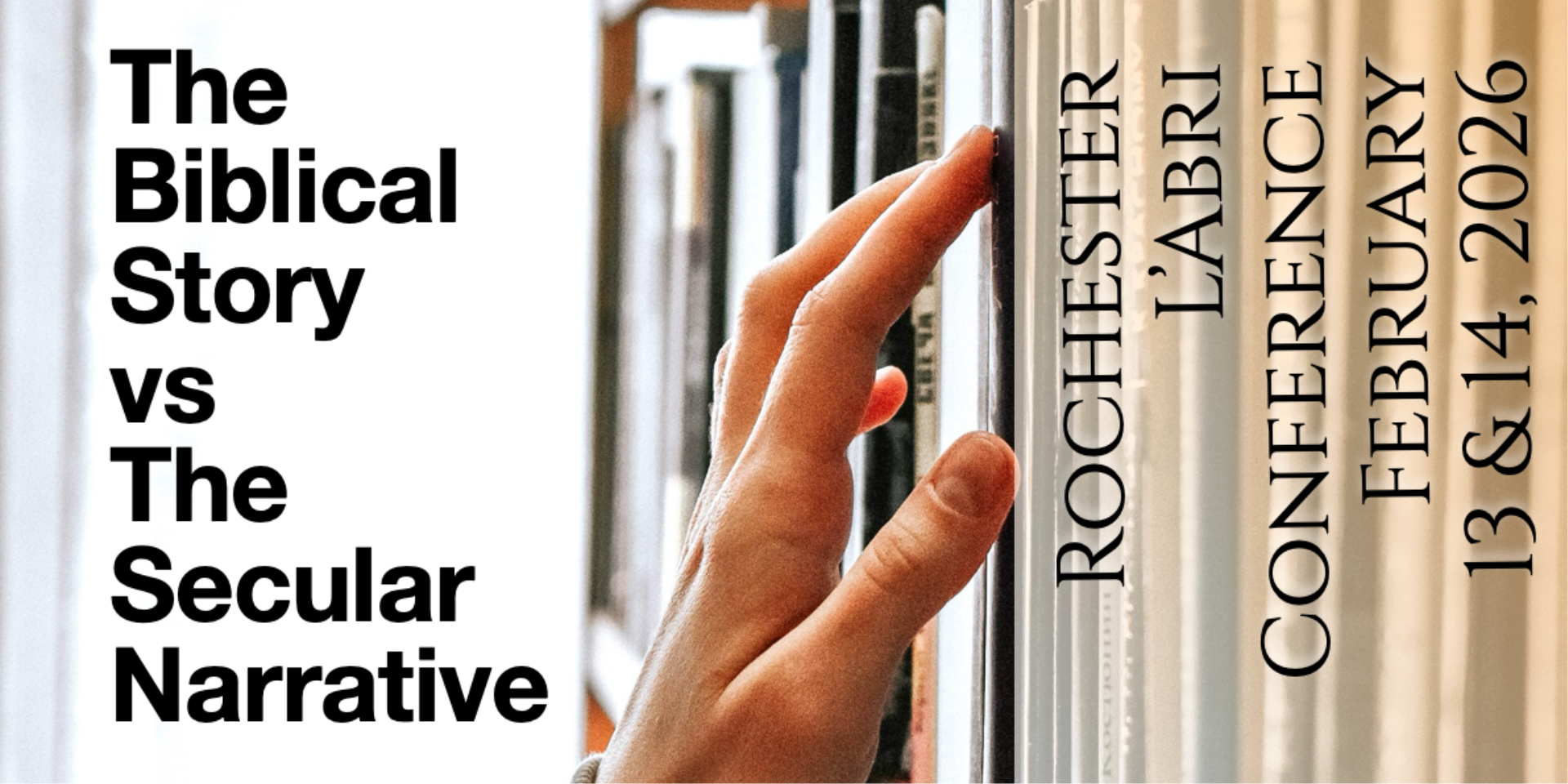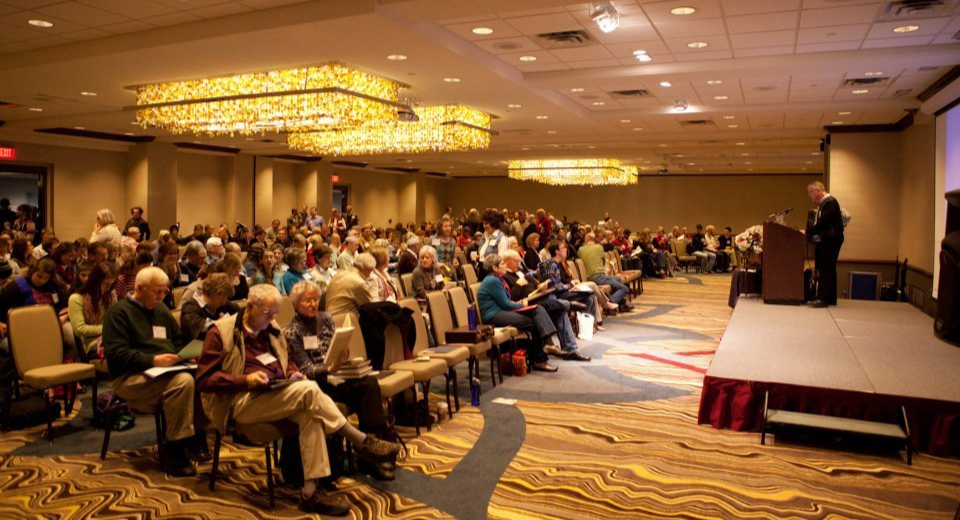
About
L’Abri is French for “the shelter.” L’Abri Fellowship
was founded by Francis and Edith Schaeffer in 1955 to provide a hospitable environment for any person seeking honest answers to honest questions about God and truth. L'Abri branches operate as residential study centers in ten locations around the world, including Rochester, Minnesota. Following in this tradition, a L’Abri Conference provides an opportunity through lectures, discussions, and personal interaction to deepen our understanding of what it means to be fully human in light of the transformative truth of Christianity. Each lecture, workshop, mealtime, and discussion is designed to facilitate an exchange of ideas among conference attendees and speakers.
At this Conference we want to trace the Biblical storyline through six key themes: Creation, Fall, Atonement, Kingdom, Consummation and Meaning. At each point, we will compare the Biblical view with its secular counterpart, thereby disempowering the secular narrative and helping folk to situate their own personal story within God’s grand drama.
As always, the plenary lectures will focus on our general conference theme but our many workshop options will be on a broader range of subjects.
Plenary Speakers
Workshop Speakers
Schedule
Download a printable scheduleFriday, February 13th
8:00 AM - 9:00 AM
REGISTRATION
9:00 AM - 9:05 AM
WELCOME
9:05 AM - 10:15 AM
Creation: The Making and Unmaking of the World -
AJ
Poelarends
10:30 AM - 11:45 AM
SESSION A - WORKSHOPS
12:00 PM - 1:30 PM
LUNCH BREAK (Lunch provided at the Mayo Civic Center)
2:00 PM - 3:15 PM
Fall: All Will Be Made Alive - The Doctrine of Adam’s Fall is still Good News - Hans Madueme
3:30 PM - 4:45 PM
SESSION B - WORKSHOPS
5:00 PM - 7:00 PM
DINNER BREAK (Dinner on your own)
7:00 PM - 8:15 PM
Atonement Theology under Fire: Why do Contemporary Theologians prefer the Royal Priesthood over the Prophetic? - Henk Reitsema
8:30 PM - 9:30 PM
Concert:
‘Butterfly’ - Isabelle Thom
Saturday, February 14th
8:00 AM - 9:00 AM
REGISTRATION
9:00 AM -10:15 AM
Kingdom: What Did Jesus Save Us For? - Clarke Scheibe
10:30 AM - 11:45 AM
SESSION C - WORKSHOPS
12:00 PM - 1:30 PM
LUNCH BREAK (Lunch provided at the Mayo Civic Center)
2:00 PM - 3:15 PM
Consummation: Utopian Dreams? - the Hope of New Creation for a Broken World
- Jim Paul
3:30 PM - 4:45 PM
SESSION D - WORKSHOPS
5:00 PM - 6:15 PM
Meaning: The Adventure of a Lifetime - Pursuing Truth and Objective Meaning by Discipleship to Christ in Our Relativistic and Lost World - Greg Jesson
6:15 PM - 6:30 PM
CLOSING REMARKS
Thank you for joining us!
Location
The conference will be held in the main Ballroom
of the Mayo Civic Center
in downtown Rochester, MN.
The Conference Reception is on the first floor, immediately as you enter the Civic Center from the Skyway.
Where to StayWe have secured favorable room rates from the following hotel:
The Hotel Indigo
(The closest Hotel to the Civic Center - accessible via the Skyway)
- Standard King - $119/night (plus taxes & fees)
- Standard Double Queen - $119/night (plus taxes & fees)
- Parking is available at a discounted rate of $12 per night per vehicle
- To reserve, click L'Abri Conference 2026
- Or call Hotel reservations at 1.507.252.8200 and use Group Code: L'Abri
Please note that block rates end on January 15th, 2026
Registration
Online Registration
Please note there are additional fees for the convenience of registering online and paying via credit card
Online Registration via Eventbrite
Mail in Registration
Please print out registration form and mail in together with your check
